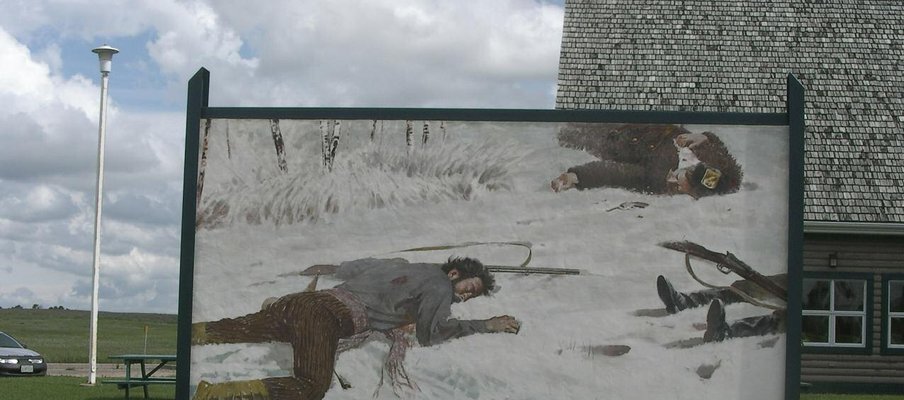Duck Lake identity shaped by vivid heritage

Related Programs

Duck Lake has been busy with many projects aimed at bringing its history alive through arts, education and celebration. The area surrounding Duck Lake is rich with culture and the community has been busy working on ways it can reflect its vivid history.
Duck Lake, located 88 km north of Saskatoon, lies right in the heart of the locations tied to the well-known Northwest Rebellion of 1885, where the Métis, First Nations and some of original settlers made a stand against the federal authority for their land rights, and respect as people of Canada. The efforts of leaders, Louis Riel and Gabriel Dumont, and many others, forced the federal government to address the needs of this newly forming area. Today, Duck Lake hosts visitors eager to explore the many historic sites, stories and artifacts that live on to share this integral part in Saskatchewan’s history.
The Duck Lake Regional Interpretive Centre was created as a hub for sharing the culture of the area and maximizing the economic opportunities available. The Centre has been heavily involved in several projects over the years, including Trails of 1885 and the community’s wellknown Murals Project.
The Trails of 1885, celebrated in 2010 on the 125th anniversary of the Northwest Rebellion, was significant event for Duck Lake and an excellent example of how culture builds community. The anniversary highlighted the events that took place in and around Batoche helped bring many people to the area to celebrate, pay tribute and educate.
“The Trails of 1885 are such a wonderful initiative,” remarks Celine Perillat, administrator at the Regional Interpretive Centre and president of the Mural Board, as well as a member of the advisory board of The Trails of 1885. “The significant historic sites that make up the Trails of 1885 are there to be shared with the people. It is also a great marketing initiative for the community.” The Centre also provides programs based on First Nations and Métis cultures of the area, promotes the whole area of Duck Lake, and the battle in Duck Lake.
“The pioneers of Duck Lake and the stories surrounding the area are a large part of the town and community roots,” explains Perillat, “which is why the Regional Interpretive Centre is so committed to the projects. It is promoting how cultures have grown around each other and become a part of the community.”
Perillat adds, “the Murals Project is based on showcasing history through art, representing certain events such as the events of 1885 and the signing of Treaty Six.” The murals are designed both to promote tourism into the area and as a symbol of homage to the pioneers of Duck Lake.
“The Mural Project was started and continues thanks to support coming from volunteers who donate their time and energy to fundraising efforts that help to maintain the projects,” she adds. The last mural was created in 2005 marking Saskatchewan’s centennial. “At this point, we are focused on repairing the murals we already have,” explains Perillat. “Since it costs for upkeep and maintenance of the murals, continued support from the community is much appreciated.”
The Duck Lake Regional Interpretive Centre provides information, answers, brochures, and has staff available for those interested in finding out more about Duck Lake’s heritage.
Visit www.dlric.org or www.ducklake.ca for more information.

